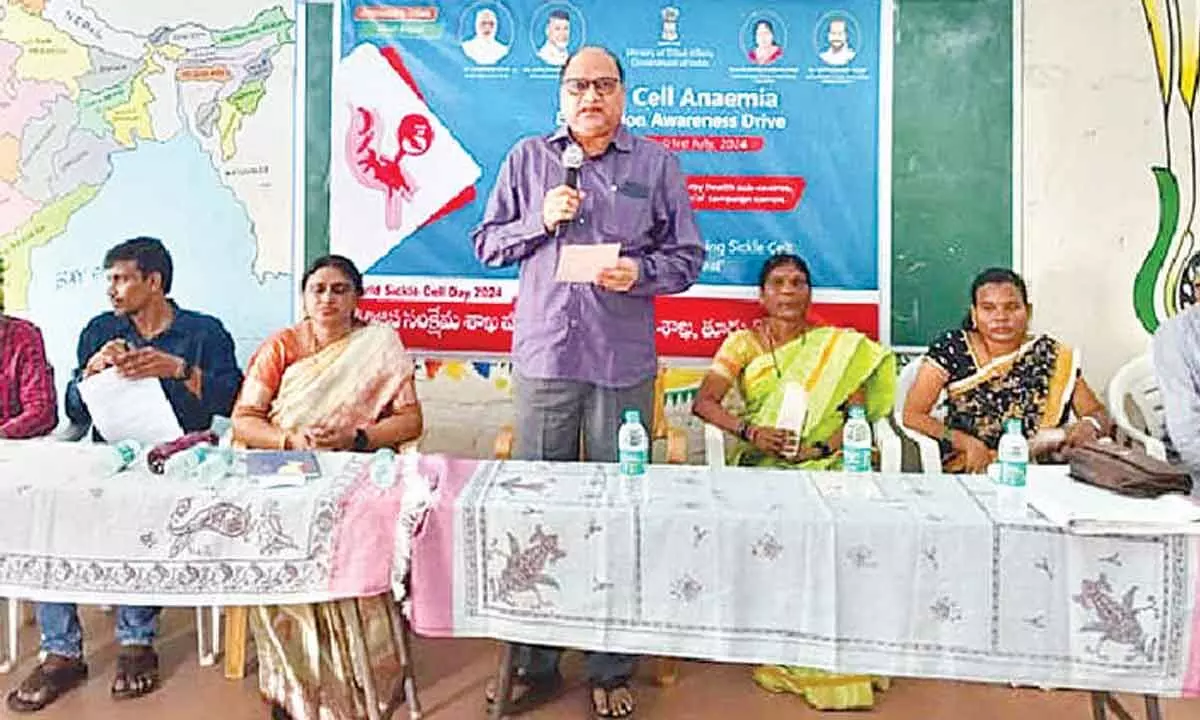Sickle cell anaemia is not contagious: DMHO

- Sickle Cell Anaemia Disease Eradication Day’ was observed in the local district Tribal Welfare Girls’ High School
- The state government is working to prevent the disease by creating awareness in the tribal areas
Rajamahendravaram : An awareness programme was organised on the occasion of ‘Sickle Cell Anaemia Disease Eradication Day’ in the local district Tribal Welfare Girls’ High School and The district medical and health officer K Dr Venkateswara Rao presided over the programme.
Speaking on the occasion, Rao said that sickle cell anaemia disease is not transmitted from one person to another due to air, water, touch, and food habits. He said this disease is not contagious and is genetically transmitted only from parents. A pale body, green eyes, and tongue, age-appropriate height and weight mismatch, and swelling at the joints of the legs are its symptoms.
These patients should use the medicines provided by ANMs. If not treated properly, it can lead to life-threatening conditions.
He said that the state government is working to prevent this disease by creating awareness among the population in the tribal areas and conducting universal diagnostic tests and counselling.
District RBSK Programme Officer Dr Harischandra said that the genes responsible for the production of haemoglobin become defective in those who inherit sickle cell anaemia.
District Tribal Welfare Empowerment Officer KN Jyoti, District Programme Manager of DPMU Dr Abhishek Reddy, and District Epidemiologist Sudhir Babu spoke.
Officials said that a blood test called electrophoresis can be used to diagnose the disease.
Tribal Welfare Girls High School In-charge HM B Sita, Deputy Warden B Karramma, and PD G Chinna Rao participated.








